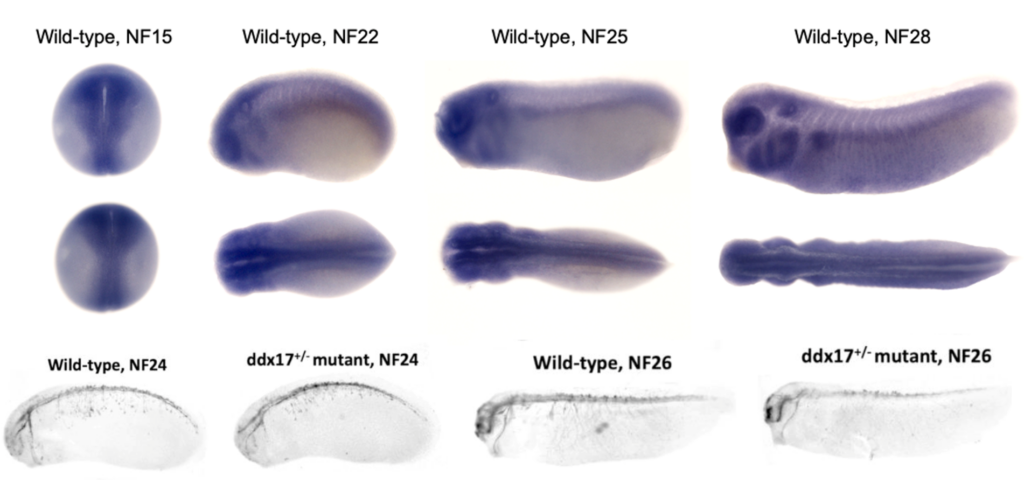Tia, a second year SoCoBio DTP student, is excited to share her first publication in Brain ‘Monoallelic de novo variants in DDX17 cause a neurodevelopmental disorder’.
DDX17 is an RNA helicase known to be involved in critical processes during the early phases of neuronal cell differentiation. This paper compiled a case-series of 11 patients harbouring de novo heterozygous variants in DDX17 with neurodevelopmental phenotypes including intellectual disability, delayed speech and language, and motor delay.
Tia’s contribution to this paper was work in the model organism Xenopus tropicalis, the western clawed frog. The ddx17 gene was damaged in tadpoles in a way similar to the human patients using genome engineering techniques. X. tropicalis with and without the gene damage were compared for morphology, behaviour, and neuronal growth. In situ hybridization for ddx17 mRNA in X. tropicalis embryos across development demonstrated ubiquitous expression that was notably higher in neural tissues consistent with ddx17’s proposed role in neurodevelopmental disease. In addition, immunohistochemical staining of axons showed limited axonal growth in tadpoles with the damaged ddx17 gene; they also had clear neurodevelopmental defects and showed an impaired neurobehavioral phenotype.
In summary, this research identified neurodevelopment disease-causing variants in a gene not previously associated with disease. Together with collaborators’ experiments, Tia’s research showed that the ddx17 gene is crucial for correct neurodevelopment in both mammalian and non-mammalian species and for controlling the expression of key neurodevelopment genes.
For further reading this research is published by Oxford University Press on behalf of the Guarantors of Brain. (https://pubmed.ncbi.nlm.nih.gov/39405200/) (https://doi.org/10.1093/brain/awae320).

